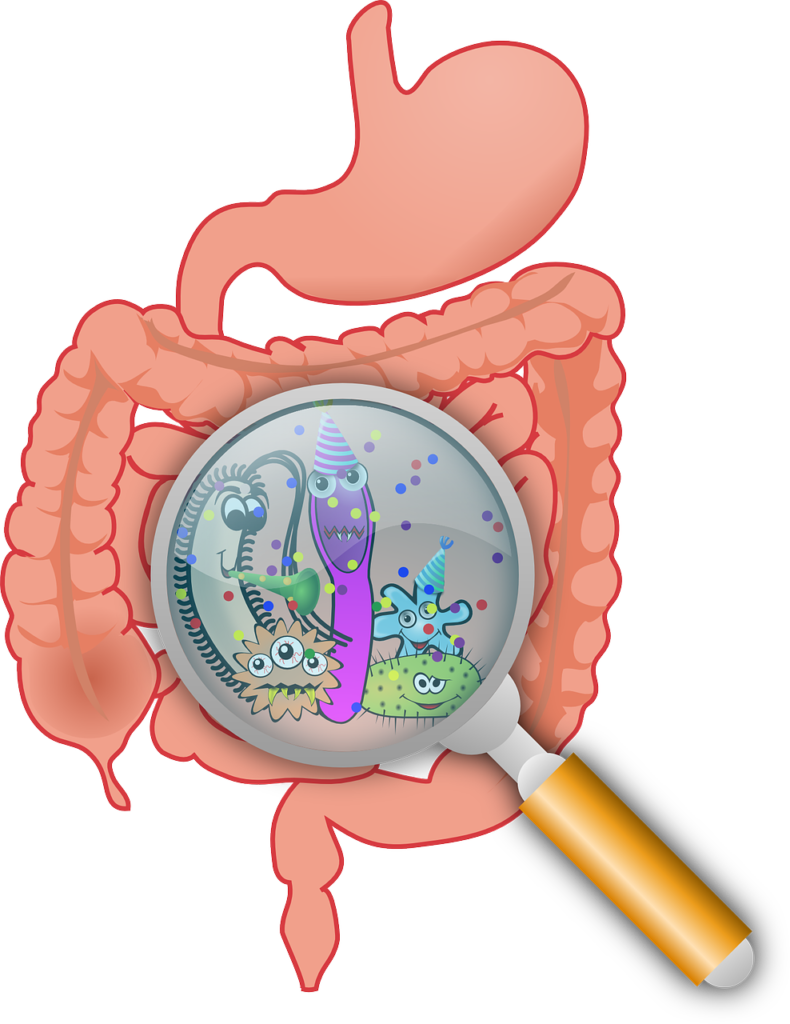Digestive problems can be caused by various factors including poor diet, lack of exercise, infections, and medical conditions. Symptoms of digestive problems include abdominal pain, bloating, constipation, diarrhea, nausea, vomiting, and heartburn. Some common types of problems include GERD, IBS, IBD, diverticulitis, peptic ulcers, and celiac disease. It’s essential to understand the causes and symptoms of it to seek appropriate medical care and maintain digestive health.
Common Causes of Digestive Problems
Digestive problems can be caused by a variety of factors, including poor diet, lack of physical activity, stress, infections, and certain medical conditions. Some common causes of include gastroesophageal reflux disease (GERD), irritable bowel syndrome (IBS), inflammatory bowel disease (IBD), food intolerances or allergies, and infections like gastroenteritis. Identifying the underlying cause of digestive problems is important for effective treatment.
Symptoms of Digestive Problems
Digestive problems can cause a wide range of symptoms, depending on the type and severity of the condition. Some common symptoms of include abdominal pain, bloating, constipation, diarrhea, nausea, vomiting, and heartburn. Other symptoms may include fatigue, weight loss, and blood in the stool. It’s important to seek medical attention if you experience persistent or severe symptoms.
Types of Digestive Problems
There are many different types of digestive problems that can affect the gastrointestinal tract. Some common types include GERD, IBS, IBD, diverticulitis, peptic ulcers, and celiac disease. These conditions can affect different parts of the system and may cause a variety of symptoms. Treatment options for this problem will depend on the type and severity of the condition, as well as the underlying cause.
Common Conditions That Affect Digestive System
There are numerous conditions that can irritate your digestive system. Some common conditions include:
Gastrointestinal Reflux Disorder (GERD)
GERD is a digestive disorder characterized by chronic acid reflux, which occurs when stomach acid flows back into the esophagus. This can cause heartburn, chest pain, difficulty swallowing, and other symptoms. GERD is often caused by a weakened lower esophageal sphincter (LES), which allows stomach acid to flow back into the esophagus. Treatment may include medications to reduce acid production, lifestyle changes, and surgery in severe cases.
Inflammatory Bowel Disease (IBD)
IBD is a group of conditions that cause chronic inflammation in the tract. The two main types of IBD are Crohn’s disease and ulcerative colitis. Symptoms may include abdominal pain, diarrhea, rectal bleeding, weight loss, and fatigue. The exact cause of IBD is unknown, but it is believed to be related to a combination of genetic, environmental, and immune system factors. Treatment may include medications to reduce inflammation, surgery, and dietary changes.

Irritable Bowel Syndrome (IBS)
IBS is a common digestive disorder that affects the large intestine. It is characterized by abdominal pain, bloating, and changes in bowel habits, such as diarrhea or constipation. The exact cause of IBS is unknown, but it may be related to abnormal muscle contractions in the intestine or changes in the gut microbiome. Treatment may include dietary changes, stress management, and medications to relieve symptoms.
Diverticulitis
Diverticulitis is a condition in which small pouches (diverticula) in the digestive tract become inflamed or infected. Symptoms may include abdominal pain, fever, nausea, and changes in bowel habits. Diverticulitis is often caused by a low-fiber diet, which can lead to constipation and increased pressure in the colon. Treatment may include antibiotics, dietary changes, and surgery in severe cases.
Celiac Disease
Celiac disease is an autoimmune disorder in which consuming gluten, a protein found in wheat, barley, and rye, triggers an immune response that damages the small intestine. This can lead to symptoms such as diarrhea, abdominal pain, and fatigue. Celiac disease is often diagnosed through blood tests and biopsy of the small intestine. Treatment involves following a strict gluten-free diet, which can help alleviate symptoms and prevent further damage to the intestine.
Treating Digestive Problems
Digestive issues can be treated through numerous ways but the most common ways to treat digestive problems are:
Medications for Digestive Problems
There are various medications available to treat digestive problems, depending on the specific condition and symptoms. For example, proton pump inhibitors (PPIs) can reduce acid production in the stomach and help treat GERD and peptic ulcers. Antidiarrheal medications may be used to treat diarrhea associated with IBS or IBD. Antibiotics are often prescribed for infections that cause these issues, such as H. pylori infection or diverticulitis. It’s important to work with a healthcare provider to determine the appropriate medication and dosage for your specific condition.

Lifestyle Changes for Digestive Problems
In addition to medications, lifestyle changes can be an important part of treating digestive problems. For example, avoiding trigger foods (such as spicy or fatty foods) and eating smaller, more frequent meals can help reduce symptoms of GERD and IBS. Increasing fiber intake and staying hydrated can help prevent constipation and improve symptoms of IBD and diverticulitis. Regular exercise, stress management techniques (such as meditation or yoga), and quitting smoking may also help alleviate symptoms of these problems.
Alternative and Complementary Therapies for Digestive Problems
Some people may choose to explore alternative or complementary therapies to manage their digestive problems. For example, probiotics (which contain beneficial bacteria) may help improve symptoms of IBS and other disorders. Acupuncture, hypnotherapy, and massage therapy have also been studied as potential treatments for these problems. It’s important to talk with a healthcare provider before starting any alternative or complementary therapies, as they may interact with medications or exacerbate certain conditions.
Overall, understanding the common causes, symptoms, and types of problems is important for maintaining digestive health and seeking appropriate medical care when necessary.